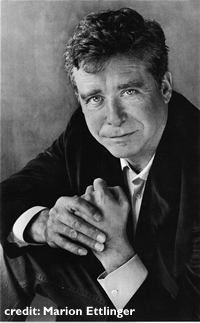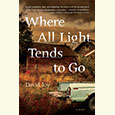More Than Just a Party Boy
How it Ended: New & Collected Stories functions as a handy career retrospective, confirming that Jay McInerney is a genuine literary artist
Jay McInerney’s reputation as a celebrated citizen of the Land of the Beautiful Damned has, over the course of his career, frequently obscured the fact that he is a gifted stylist and storyteller with an acute sense of place and an admirable empathy for even the most outwardly despicable characters. How it Ended: New & Collected Stories functions as a handy career retrospective, confirming—especially in those stories set outside the world of sex-, drugs-, and status-starved yuppies for which he is most famous—that Jay McInerney is a genuine literary artist whose work adds up to much more than the sum of its parts.
The collection opens with McInerney’s first published story, “It’s 6 a.m., Do You Know Where You Are?,” which, as McInerney explains in the volume’s illuminating preface, was the product of a furious all-night writing binge and gave birth to the voice that became Bright Lights, Big City, the massively successful first novel that catapulted him to fame. Prototypes or fragments from other novels abound. Voyeurs of contemporary scandal will doubtlessly be drawn to “Story of My Life,” which became the novel of the same title that McInerney based on a former girlfriend who has since gone on to greater infamy as the mother of John Edwards’s love child. (McInerney gives her latest debacle a gently satirical treatment here in “Penelope on the Pond.”)
 Other stories reflect an almost eerie prescience of the conflicts that would define fin de siècle America. “My Public Service,” written in 1992, reveals the operations of a “body man” for a Presidential hopeful “known as a champion of comprehensive national health care and tax reform” who, “if he had fifteen minutes between appointments, wanted to spend them in hot congress with a warm body.” In “In the North-West Frontier Province,” written in 1982, the doomed exploits of a pair of imprudent young American would-be heroin smugglers in Afghanistan serve as a chiding metaphor for a uniquely western brand of folly that continues to exact a bloody toll.
Other stories reflect an almost eerie prescience of the conflicts that would define fin de siècle America. “My Public Service,” written in 1992, reveals the operations of a “body man” for a Presidential hopeful “known as a champion of comprehensive national health care and tax reform” who, “if he had fifteen minutes between appointments, wanted to spend them in hot congress with a warm body.” In “In the North-West Frontier Province,” written in 1982, the doomed exploits of a pair of imprudent young American would-be heroin smugglers in Afghanistan serve as a chiding metaphor for a uniquely western brand of folly that continues to exact a bloody toll.
Perhaps of greatest interest to Chapter 16 readers will be the stories inspired by the period during the 1990s when McInerney lived in Middle Tennessee. It’s certainly pleasurable to see Nashville and its orbit through the eyes of a New York playboy with a wicked sense of humor. The best of these stories is “Summary Judgment,” in which an aging gold-digger disastrously attempts to con a marriage proposal out of a wealthy bachelor, and “The Debutante’s Return,” where a southern belle comes home from New York to help her mother die with dignity and keep her brother from poaching all the antique furniture. Such stories reveal a particularly Gatsby-ish obsession with money and class that yields biting social criticism without dispelling the author’s clear fondness for the world of both new- and old-money snobs.
A few of McInerney’s Nashville tales depart from the Swan Ball culture of sprawling estates, country clubs, and horse farms, and the comparative weakness of those stories suggests that McInerney is best off sticking to what he knows. Case in point: “Invisible Fences,” a sordid view of a pair of middle-class ‘swingers’ that seems valuable only for reminding us that a gentleman should always hold a lady’s hair back while she’s snorting up a rail of McInerney’s famed “Bolivian marching powder” and for making us wonder: do people who live in Green Hills really get that kinky?
Then again, therein lies the appeal of Jay McInerney’s fiction: he’s always ready to give up every detail of even the worst of the many parties he’s attended—or imagined. Even when it makes you feel a little dirty, McInerney’s prose is irresistible, and, more often than not, raises the stories above the sensationalism of their subject matter. How it Ended is a perfect primer on how Jay McInerney became a shooting star—and how, despite the speed of his life, he has managed to avoid burning out.


